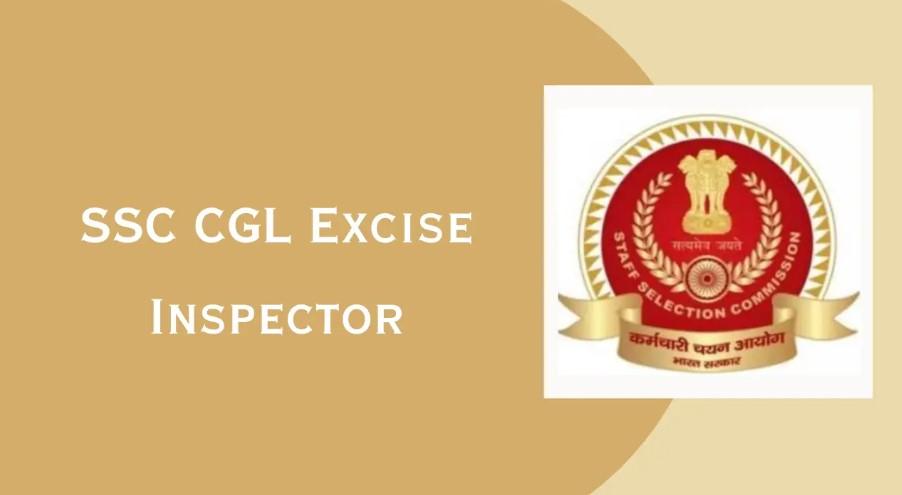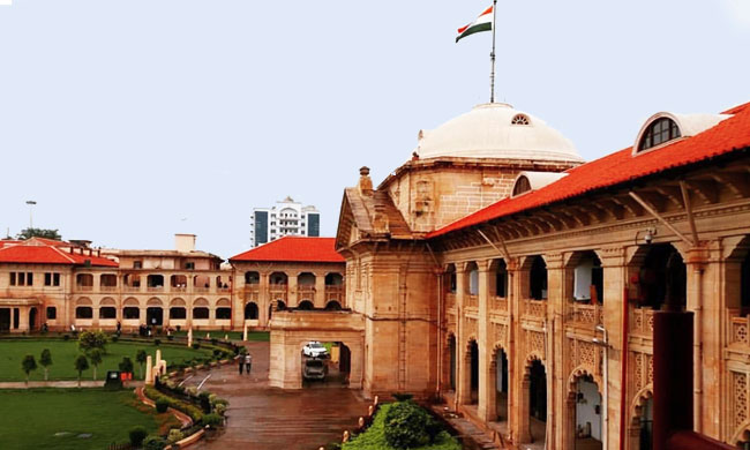Service Tax on Construction Activities – by CA. Ankit Gulgulia

Section 66B of Finance Act, 1994 shall be the new charging section of service tax. There shall be levied a service tax at the rate of twelve per cent on the value of all services, other than those services specified in the negative list, provided or agreed to be provided in the taxable territory by one person to another and collected in such manner as may be prescribed.
As seen above for chargeability of service tax the term ‘service’ holds key position. Since 1994 service definition was not defined by the statutes. Now for the first time, service has been defined by proposed section 65B(44) as any activity carried out by a person for another for consideration, and includes a declared service, but shall not include:
(a) an activity which constitutes merely,––
(i) a transfer of title in goods or immovable property, by way of sale, gift or in any other manner; or
(ii) a transaction in money or actionable claim;
(b) a provision of service by an employee to the employer in the course of or in relation to his employment;
(c) fees taken in any Court or tribunal established under any law for the time being in force.
Key notes in service definition
v No service if functions performed by the Members of Parliament, Members of State Legislative, Members of panchayats, Members of Municipalities and Members of other local authorities who receive any consideration in performing the functions of that office as such member.
v No service if the duties performed by any person who holds any post in pursuance of the provisions of the Constitution in that capacity
v No service if the duties performed by any person as a Chairperson or a Member or a Director in a body established by the Central Government or State Governments or local authority and who is not deemed as an employee before the commencement of this section.
v These shall be treated as distinct persons
o An unincorporated association or a body of persons and a member thereof.
o An establishment of a person in the taxable territory and any of his other establishment in a non-taxable territory.
Construction Activity
Construction activity finds it place in deemed service under proposed section 66E. As per section 66E(b) following service shall be held as deemed service and service tax shall be applicable on the same.
Presently construction activity was broadly covered under three heads:
- a)Section 65(105)(zzq) – Commercial / Industrial construction
- b)Section 65(105)(zzzh) – Residential complex
- c)Section 65(105)(zzzza) – Works contract (Civil structures and others)
“Construction of a complex, building, civil structure or a part thereof, including a complex or building intended for sale to a buyer, wholly or partly, except where the entire consideration is received after issuance of completion-certificate by the competent authority.” Hence, it covers residential, commercial or industrial construction. (Please don’t draw any conclusion as of now!).Construction includes additions, alterations, replacements or remodeling of any existing civil structure
Deeming fiction in identification of construction service
Where the entire consideration is received after issuance of completion-certificate by the competent authority then the same shall be out of service tax gamut. Conversely, where the entire consideration is not received after issuance of completion-certificate by the competent authority then the same shall be charged to service tax. So say, the consideration is received partly before and partly after the completion the same shall be subject to service tax.
Completion certificate of competent authority shall be relevant for above provisions. Competent authority means the Government or any authority authorized to issue completion certificate under any law for the time being in force and in case of non requirement of such certificate from such authority, from any of the following, namely:––
(A) Architect registered with the Council of Architecture constituted under the Architects Act, 1972; (20 of 1972.) or
(B) Chartered engineer registered with the Institution of Engineers (India); or
(C) Licensed surveyor of the respective local body of the city or town or village or development or planning authority.
Exemptions to certain construction activities
- A)Service to the government and non commercial construction (Sl.12 of Not. 12/2012)
Services provided to the Government or local authority by way of erection, construction, maintenance, repair, alteration, renovation or restoration of –
(a) A civil structure or any other original works meant predominantly for a non-industrial or non-commercial use;
(b) A historical monument, archaeological site or remains of national importance, archaeological excavation, or antiquity specified under Ancient Monuments and Archaeological Sites and Remains Act, 1958 (24 of 1958);
(c) A structure meant predominantly for use as (i) an educational, (ii) a clinical, or (iii) an art or cultural establishment;
(d) Canal, dam or other irrigation works;

(e) Pipeline, conduit or plant for (i) drinking water supply (ii) water treatment (iii)sewerage treatment or disposal; or
(f) A residential complex predominantly meant for self-use or the use of their employees
- B)Services for Infrastructure / Charitable purpose / etc ( Sl. 13 of Not. 12/2012)
Services provided by way of erection, construction, maintenance, repair, alteration, renovation or restoration of,-
(a) road, bridge, tunnel, or terminal for road transportation for use by general public;
(b) building owned by an entity registered under section 12 AA of the Income tax Act, 1961(43 of 1961) and meant predominantly for religious use by general public;
(c) pollution control or effluent treatment plant, except located as a part of a factory; or
(d) electric crematorium
- C)Service of Original works infrastructure construction & agricultural relating construction (Sl. 14 of Not. 12/2012)
Services by way of erection or construction of original works pertaining to,-
(a) airport, port or railways;
(b) single residential unit otherwise as a part of a residential complex (single residential unit means an independent residential unit with specific facilities for living, cooking and sanitary requirements & residential complex means any complex comprising of a building or buildings, having more than one single residential unit)
(c) low- cost houses up to a carpet area of 60 square metres per house in a housing project approved by competent authority empowered under the ‘Scheme of Affordable Housing in Partnership’ framed by the Ministry of Housing and Urban Poverty Alleviation, Government of India;
(d) post- harvest storage infrastructure for agricultural produce including a cold storages for such purposes; or
(e) mechanised food grain handling system, machinery or equipment for units processing agricultural produce as food stuff excluding alcoholic beverages
What does ‘Original Works’ means?
Original works means –
(a) all new constructions; or
(b) all types of additions and alterations to abandoned or damaged structures on land that are required to make them workable.
Few Crucial Issues
The major issues discussed below are as under:
- A)Whether service tax is applicable on supply of units free of cost to Landowner?
In a tripartite business model, parties involved in the model are (i) landowner; (ii) builder or developer; and (iii) contractor who undertake construction. Issue involved is regarding the liability to pay service tax on flats/houses agreed to be given by builder/developer to the land owner towards the land /development rights and to other buyers.
Clarification: Here two important transactions are identifiable: (a) sale of land by the landowner which is not a taxable service; and (b) construction service provided by the builder/developer. The builder/developer receives consideration for the construction service provided by him, from two categories of service receivers: (a) from landowner in the form of land/development rights; and (b) from other buyers normally in cash.
Taxability of the construction service:
(i) For the period prior to 01/07/2010: construction service provided by the builder/developer will not be taxable, in terms of Board’s Circular No.108/02/2009-STdated 29.01.2009.
(ii) For the period after 01/07/2010, construction service provided by the builder/developer is taxable in case any part of the payment/development rights of the land was received by the builder/ developer before the issuance of completion certificate and the service tax would be required to be paid by builder/developers even for the flats given to the land owner.
Valuation:
(i) Value, in the case of flats given to first category of service receiver, is determinable in terms of section 67(1)(iii) read with rule 3(a) of Service Tax (Determination of Value) Rules, 2006, as the consideration for these flats i.e., value of land / development rights in the land may not be ascertainable ordinarily. Accordingly, the value of these flats would be equal to the value of similar flats charged by the builder/developer from the second category of service receivers. In case the prices of flats/houses undergo a change over the period of sale (from the first sale of flat/house in the residential complex to the last sale of the flat/house), the value of similar flats as are sold nearer to the date on which land is being made available for construction should be used for arriving at the value for the purpose of tax.
Point of Taxation
Service tax is liable to be paid by the builder/developer on the ‘construction service’ involved in the flats to be given to the land owner, at the time when the possession or right in the property of the said flats are transferred to the land owner by entering into a conveyance deed or similar instrument(eg. allotment letter).
(ii) Value, in the case of flats given to the second category of service receivers, shall be determined in terms of section 67 of the Finance Act, 1994.
- B)Redevelopment of existing building and slum rehabilitation projects
Generally in this model, land is owned by a society, comprising members of the society with each member entitled to his share by way of an apartment. When it becomes necessary after the lapse of a certain period, society or its flat owners may engage a builder/developer for undertaking re-construction. Society /individual flat owners give ‘No Objection Certificate’ (NOC) or permission to the builder/developer, for re-construction. The builder/developer makes new flats with same or different carpet area for original owners of flats and additionally may also be involved in one or more of the following:
(i) construct some additional flats for sale to others;
(ii) arrange for rental accommodation or rent payments for society members/original owners for stay during the period of re-construction;
(iii) pay an additional amount to the original owners of flats in the society.
Clarification: Under this model, the builder/developer receives consideration for the construction service provided by him, from two categories of service receivers. First category is the society/members of the society, who transfer development rights over the land (including the permission for additional number of flats), to the builder/developer. The second category of service receivers consist of buyers of flats other than the society/members. Generally, they pay by cash.
Taxability:
(i) Re-construction undertaken by a building society by directly engaging a builder/developer will not be chargeable to service tax as it is meant for the personal use of the society/its members. Construction of additional flats undertaken as part of the reconstruction, for sale to the second category of service receivers, will also not be a taxable service, during the period prior to 01/07/2010
(ii) For the period after 01/07/2010, construction service provided by the builder/developer to second category of service receivers is taxable in case any payment is made to the builder/ developer before the issuance of completion certificate.
- C)Allotment of specified areas to investors
In this model, before the commencement of the project, the same is on offer to investors. Either a specified area of construction is earmarked or a flat of a specified area is allotted to the investors and as it happens in some places, additionally the investor may also be promised a fixed rate of interest. After a certain specified period an investor has the option either to exit from the project on receipt of the amount invested alongwith interest or he can re-sell the said allotment to another buyer or retain the flat for his own use
Clarification: In this model, after 01/07/2010, investment amount shall be treated as consideration paid in advance for the construction service to be provided by the builder/developer to the investor and the said amount would be subject to service tax. If the investor decides to exit from the project at a later date, either before or after the issuance of completion certificate, the builder/developer would be entitled to take credit under rule 6(3) of the Service Tax Rules, 1994( to the extent he has refunded the original amount). If the builder/developer resells the flat before the issuance of completion certificate, again tax liability would arise.

- D)Conversion of existing building for different use
Conversion of any hitherto untaxed construction /complex or part thereof into a building or civil structure to be used for commerce or industry, after lapse of a period of time.
Clarification: Mere change in use of the building does not involve any taxable service, unless conversion falls within the meaning of commercial or industrial construction service
- E)Joint Development agreement
Under this model, land owner and builder/developer join hands and may either create a new entity or otherwise operate as an unincorporated association, on partnership /joint / collaboration basis, with mutuality of interest and to share common risk/profit together. The new entity undertakes construction on behalf of landowner and builder/developer. In such a case service tax shall be leviable.
(The fact that when a new entity can be said to be incorporated is a matter of debate and also in ideal situation service tax shall be leviable only when new legal entity exists. For those of us who believed that UJV cannot be subjected to service tax for want of separate legal entity, the same is now a deemed person as per proposed section 65B(37)(vii))
- F)Build Operate and Transfer Projects
Transactions involving taxable service take place usually at three different levels: firstly, between Government or its agency and the concessionaire; secondly, between concessionaire and the contractor and thirdly, between concessionaire and users, all in terms of specific agreements.
Taxability
(i) The service provided by the Government or its agency to the concessionaire is liable to service tax
(ii) The construction services provided by the contractor to the concessionaire would be examined from the point of taxability as to whether the activity is not otherwise excluded
(iii) The services provided by the concessionaire to the user of the facility are liable to service tax
Persons liable to pay tax
Government or its agency and concessionaire are liable to pay tax on the services being provided by them. There could be several other persons liable to pay service tax, depending on the variant of the BOT model followed.
- G)Service tax on toll fee paid by users for using the roads
Service tax is not leviable on toll paid by the users of roads, including those roads constructed by a Special Purpose Vehicle (SPV) created under an agreement between National Highway Authority of India (NHAI) or a State Authority and the concessionaire (Public Private Partnership Model, Build-Own/Operate-Transfer arrangement). Toll is a matter enumerated State List in the Seventh Schedule of the Constitution of India and the same is not covered by any of the taxable services at present. Tolls collected under the PPP model by the SPV is collection on own account and not on behalf of the person who has made the land available for construction of the road.
However, if the SPV engages an independent entity to collect toll from users on its behalf and a part of toll collection is retained by that independent entity as commission or is compensated in any other manner, service tax liability arises on such commission or charges, under the Business Auxiliary Service.
Further, an SPV formed as a result of agreement between NHAI or State Authority and the concessionaire under the BOT arrangement, cannot be considered as an agent of the NHAI.

- H)Renting of vacant land for road construction
Renting, leasing or licensing of vacant land by the NHAI or State Authority to an SPV for construction of road and such construction do not attract service tax.
(Author is practicing Chartered Accountant, specializing in Indirect Taxes, including service tax, corporate laws and management consultancy. He can be reached at ankitgulgulia@gmail.com or +919811653975)
Note : As a part of Our Quality Policy , We Don’t Publish any Restricted Material on our Website . If you have issues kindly let us know here
Related Tags CBEC, construction, Negative list, Servicetax













